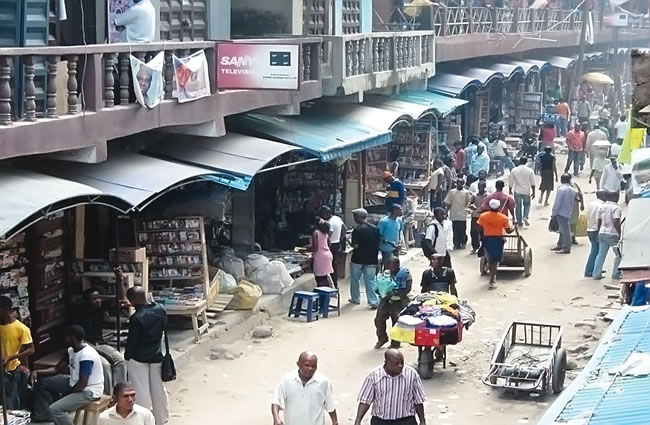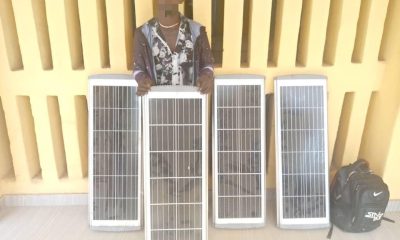The Lagos State Government has reopened the Alaba International Market and some markets in the Trade Fair Complex, which are all located in the Ojo Local Government Area.
Recall that the markets had been closed for some days due to improper waste disposal and other environmental infractions.
The Lagos State Commissioner for the Environment and Water Resources, Mr. Tokunbo Wahab, in a statement said the markets were reopened after addressing most of the environmental issues.
Wahab, however, clarified suggestions that the closure was politically motivated; he said it was rather a step towards ensuring a clean and healthy environment around the business facilities.
“The decision to reopen the markets follows a rigorous assessment and implementation of stringent environmental standards,” Wahab explained.
“These standards were set to guarantee that businesses in the state operate in a manner that is not detrimental to the environment and the well-being of people.
“I want to state emphatically that the closure of those markets has no ethnic or political motives behind it, as it was done to ensure cleanliness and environmental sustainability for the good of all residents.”
Wahab reiterated the significance of maintaining a harmonious balance between commerce and environmental health.
He did this by stating that the enforcement action was a continous one, as government would not shy away from sealing any market, corporate organisations, found wanting.
The Managing Director/CEO of the Lagos Waste Management Authority (LAWMA), Dr. Muyiwa Gbadegesin, said the agency worked closely with the markets’ stakeholders to make sure that they implemented necessary changes to meet required environmental standards.
Gbadegesin further said that it was important for markets to operate in a manner that was not only economically viable but also environmentally responsible.
“We have standards that each market in the state have to comply with, to make our business environment clean and healthy for both buyers and sellers,” he said.
“These include but not limited to proper containarisation of waste within the markets, procurement of a double dino bins and placement in designated areas within the markets.
“It also includes the engagement of bin keepers to monitor and sanitise the bins and its surroundings, zero tolerance for open burning of waste and zero tolerance for dumping of waste in the drainage channels.”
Others are, engagement of market policing personnel to monitor the sanitation of the market, setbacks, medians and its surroundings to avoid indiscriminate dumping and apprehend violators.
He also included the eradication of street trading on the road and median setbacks, which obstructs free flow of traffic and full payment of all outstanding tariffs.
The MD/CEO of LAWMA also pointed it out that any violation will attract not only a penalty but subsequent closure of the markets.
Gbadegesin urged residents and business owners to show commitment towards environmental sustainability, through proper waste disposal and adherence to environmental laws of the state, to prevent such closure that could negatively impact business activities.

 News3 years ago
News3 years ago
 Entertainment2 years ago
Entertainment2 years ago
 News3 years ago
News3 years ago
 Privacy3 years ago
Privacy3 years ago
 Sports2 years ago
Sports2 years ago
 Entertainment2 years ago
Entertainment2 years ago
 News3 years ago
News3 years ago
 Opinion3 years ago
Opinion3 years ago















